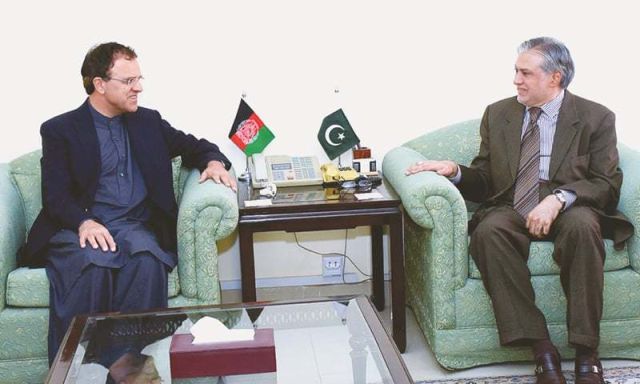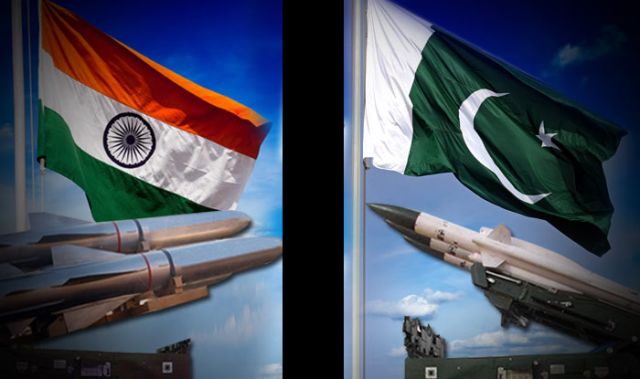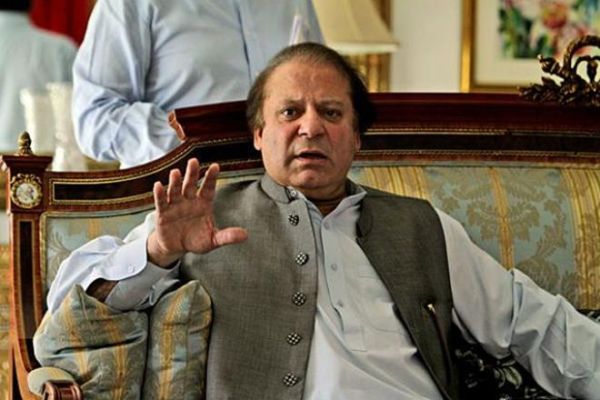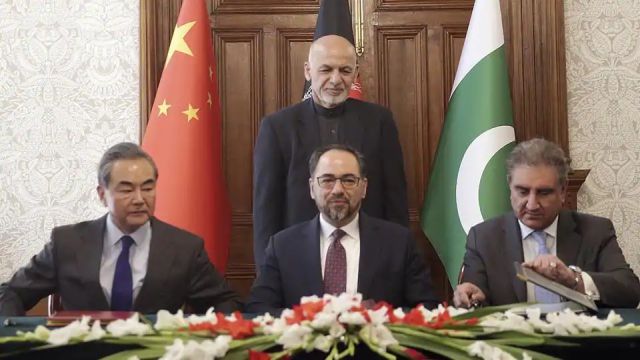
Remembering 40 years ago when Afghanistan, Pakistan, the region changed forever
“Problems” like Afghanistan, even Iran, created in the thick of the Cold War, are now in the lap of a declining sole superpower in a withdrawal mode. Since I was witness to both, the Saur and Islamic revolutions, I thought the New Year might be a good occasion to ferret out material from my notebook focusing on the Genesis. To synchronise with the arrival of 2019, let us revert to New Year’s Day, 40 years ago, 1978, when President Jimmy Carter accompanied by his National Security Adviser Zbigniew Brzezinski arrived in New Delhi. Morarji Desai was Prime Minister and Atal Bihari Vajpayee the Minister for External Affairs.
The two events need not be bound together by conspiracy theories but within four months of the Carter visit, the Saur revolution on April 28 brought Communists to power in Kabul. The next morning my story was banner headlines with the Indian Express. That Communists had taken over in Afghanistan. It was a world scoop. And I owed it to one impeccable source.
A year after Carter’s New Delhi visit, the Shah was dethroned by the Ayatullahs in Tehran. The youth in the vanguard of the revolution laid siege to US embassy from November 4, 1979, for 444 days until January 20, 1981. I still remember the tears of relief in Carter’s eyes as he embraced Vice President Walter Mondale when the hostages were released. The Carter presidency was consumed by Iran. Soon murals of Uncle Sam went up with cryptic captions: “Shaitaan e Buzurg” or Senior Satan. These incidents continued to cast a long shadow on the West’s fluctuating relations with Iran even during the bizarre Iran-contra deal when Iran, Israel and the US were in one amazing scrum.
The Shah’s notorious Savak agency, never secretive with the CIA, planned to eliminate the Left which was gaining in influence around then Afghan President Mohammad Daud who had deposed King Zahir Shah in a coup in 1973. Thereafter, the King lived in exile, in Rome, until the post 9/11 US occupation when he returned as Father of the Nation.
Two communist parties of Afghanistan, Khalq and Parchan, corresponded more or less to India’s CPI and CPI-M. I was able to attend the historic press conference addressed by Afghanistan’s head of the government after the coup, Noor Mohammad Taraki. He was leader of the Khalq faction. It was on the margins of this occasion, where well-informed middle level communist leaders were present, I picked up bits and pieces of how the coup came about.
On April 17, Mir Akbar Khyber, a trade union leader attached to the Parcham faction, was murdered, exposing prematurely the plot to eliminate the Left. Thus alerted, Communist cells in the army and the air force led by Aslam Watanjar and Abdul Qadir were activated. Reinforcement entered the palace and killed Daud. Coming of the Communists to power paved the way for the Soviet invasion in December 1979.
Brzezinski was back in the region, this time in Pakistan, peering over the parapets into Afghanistan, plotting the world’s largest programme of breeding Salafists, arming them to the hilt, to wage war against Soviet occupation. After this war had been won, spare ultra-Islamic jehadis, their morale boosted by having helped defeat a super power, flexed their muscles in Kashmir, Cairo, Algeria where the West blundered by helping the army upturn the result of the 1991 election which brought the Islamists Salvation Front in the lead.
The cancellation of election results bred more Islamism. Another complicating factor has not been mentioned yet. Since 1990, the US egged on by UNICAL, the gas giant, has developed a major interest in TAPI, the Turkmenistan, Afghanistan, Pakistan, India Pipeline. Brzezinski shrugged his shoulders: We wanted to bring down the Soviet Union; “we were not worried about some stirred up Muslims”.
I must put it down to lack of hard work on my part but the beginnings of the Islamic revolution have remained something of a haze. Was Ayatullah’s first instinct to give the new regime a civilian face in Iran? A few days after the revolution, journalists like me were directed to meet the suave Prime Minister, Mehdi Bazargan. In form, feature, sartorial detail, he was the very antithesis of the Ayatullah. He looked very European in a bow-tie and spoke English like a French grandee.
That he lasted barely nine months in that post was because of his strong opposition to the occupation of the American embassy and the taking of US hostages. Abolhassan Banisadr, who escorted Ayatullah Khomeini from exile in Neauphle-le-Chateau, 30 km from Paris, was made President. He was exiled because of internal conspiracies.
From the holy city of Qom came stories of the civilians plotting to oust the Ayatullahs who required a civilian front because a true blue Islamic revolution cannot be deemed to have taken place in the absence of the 12th Imam whose appearance will impart legitimacy to the revolution. The concept of the awaited messiah is common to all Abrahamic religions.
Various interests jump into a revolutionary situation to extract advantage. Just the other day, Marine Le Pen, with her fascist agenda, tried to move in sideways into the yellow vest agitation in Paris. The confusing chaos caused a strong wing of the Ayatullahs dust up the theory of Vali Faqih, or the intermediate Imam who can guide the revolution pending the appearance of the Mehdi or Messiah.
Like the Mujahideen in Afghanistan, one use of the Islamic revolution was to be the bulwark against the Soviets. But for them to play this role, the pro-Soviet Tudeh party, which had played a role in the success of the revolution, had to pay a price. They were no longer underground, as they had been during the Shah, and easy targets to be eliminated. A more radical Mujahideen-e-Khalq, crossed over to Iraq where Saddam Hussain nursed them as an anti-Ayatullah force.
If the CIA had a hand in eliminating the Communists, well, by the same token they have helped consolidate the Ayatullahs. What joy in this outcome?
(Saeed Naqvi is a commentator on political and diplomatic affairs. The views expressed are personal. He can be reached on saeednaqvi@hotmail.com)
—IANS




